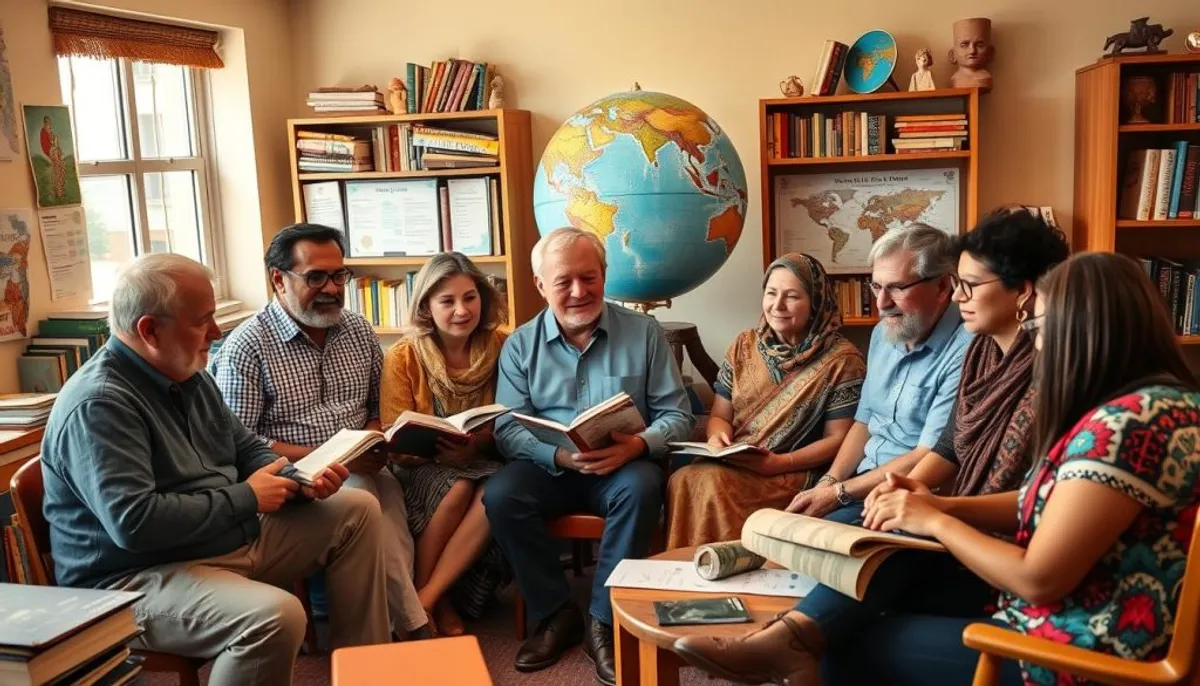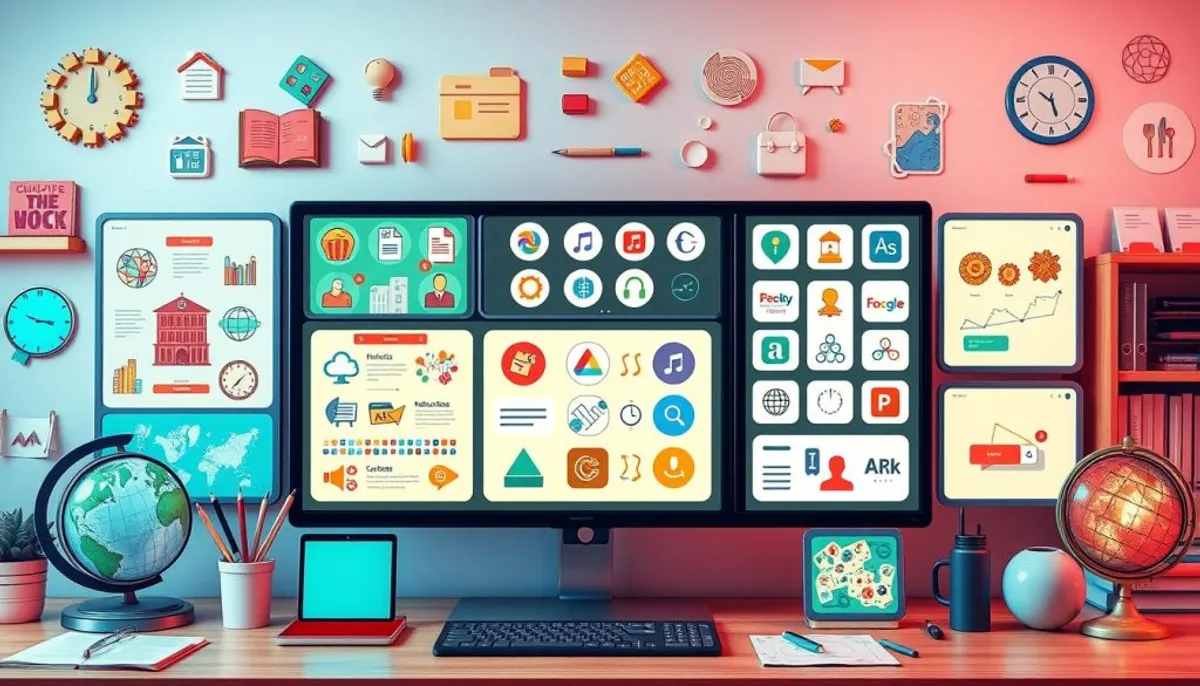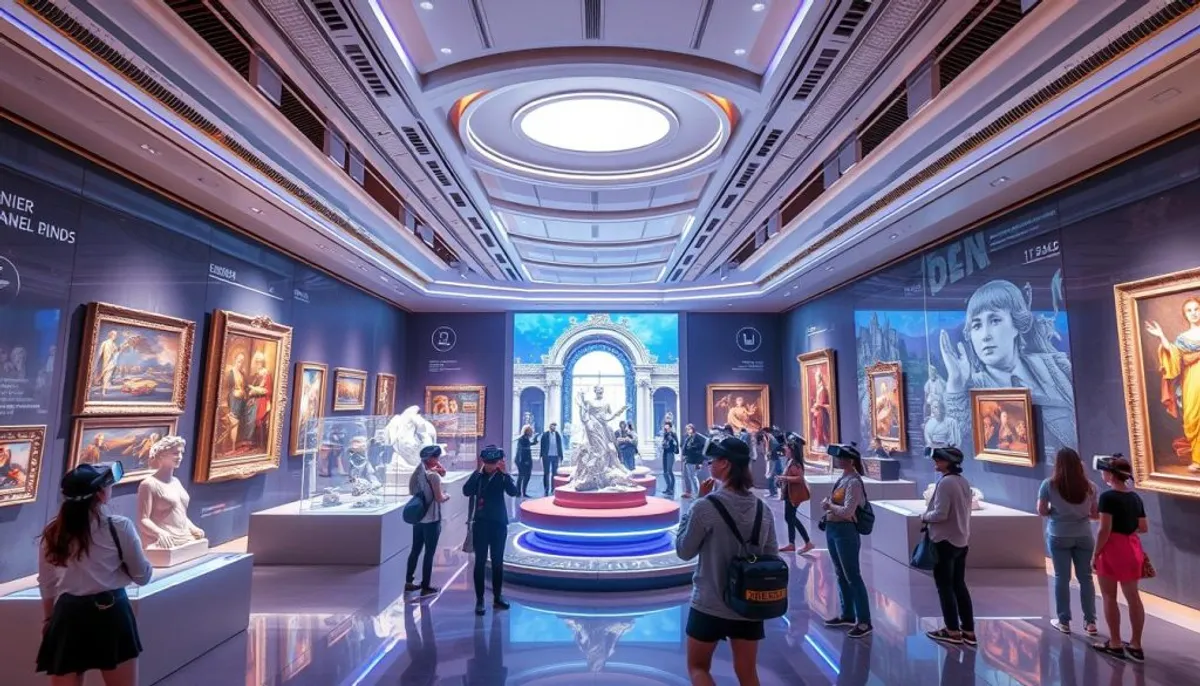The intellectual curiosity is essential for deep learning. For adults wishing to enrich their knowledge, multiple options are available. Free MOOCs offer training courses in 60 videos, available in seven languages. This flexibility of learning is unmatched.

The personal development involves exploring various fields. Music lovers benefit from over 1500 piano scores and thousands for choir and instruments, often for free. Philosophy enthusiasts can consult more than 700 articles on La-Philo to improve their essay methodology.
The sciences are also covered, with the Kezako series answering scientific questions in just a few minutes. Corpus offers a 3D journey into the human body. Futura, on the other hand, provides daily news on science and innovation.
For those who prefer group learning, many workshops are available. The “Writing Workshop - The Pleasure of Writing” is offered at €35, and sessions on French literature at €20 allow for exercising literary sensitivity. A unique workshop on wonder remains available, while “Journey to the Land of the Five Senses” still has 12 spots left.
The fundamentals of general culture training for adults
The general culture training for adults represents an opportunity to enrich knowledge. It meets the needs of learners, offering flexible and accessible formats. This training is crucial for developing intellectual curiosity.
The importance of intellectual curiosity
Curiosity is the cornerstone of continuous learning. It encourages exploring new territories, asking questions, and seeking explanations. This thirst for knowledge is fundamental to enriching one's general culture and remaining open to innovations.
The benefits of a solid general culture
A rich general culture offers numerous advantages. It strengthens self-confidence, facilitates exchanges, and enriches dialogues. It also allows for a better understanding of the surrounding world and exercising critical thinking in the face of information.
The different approaches to learning
Several learning methods exist to enrich one's general culture. Self-training, the use of digital resources, and participation in cultural activities are effective strategies. The diversity of sources and approaches is essential to stimulate the mind and maintain motivation.
| Characteristic | Detail |
|---|---|
| Maximum duration | 45 hours |
| Full price | €260 |
| Reduced price | €130 (RSA, ASS, AAH) |
| Weekly hours | 3 hours |
| Course location | 43 rue ARMAND CARREL (19th) |
These general culture trainings align with the law of September 5, 2018, for the freedom to choose one's professional future. They aim to develop linguistic, methodological, personal, and social skills. These skills are essential for personal and professional growth.
Applications and digital tools to enrich one's culture
Educational applications and digital tools today offer numerous possibilities to develop general culture in a fun and interactive way. Let’s discover together some innovative solutions to enrich your knowledge.
Google Arts & Culture: an artistic immersion without limits
The Google Arts & Culture app opens the doors to over 2000 museums, monuments, and art galleries around the world. This platform allows you to explore works in high resolution and virtually visit exhibitions. It offers a rich cultural experience accessible to everyone.

Cultural Coach: stimulating interactive quizzes
To test and improve your knowledge, the Cultural Coach app offers over 3000 questions divided into 10 categories. Since 2010, it has attracted 7 million players worldwide. These varied cultural quizzes allow for learning while having fun.
Duolingo: simplified language learning
In the field of language learning, Duolingo stands out with its 32,000 interactive exercises. The app promises mastery of 75 words in a week with just 15 minutes of daily practice. It also offers over 2000 useful words and expressions for intermediate French learners.
These innovative digital tools make acquiring knowledge more accessible and engaging. Whether exploring art, testing general culture, or learning a new language, these educational applications adapt to all levels. They offer a personalized learning experience.
Multimedia learning methods and varied supports
Technological advances have multiplied resources to enrich our culture. Educational podcasts, cultural programs, educational streaming platforms, and online resources offer flexible learning. They adapt to individual interests, promoting personalized learning.
Cultural podcasts and radio shows
Educational podcasts, such as “Things to Know,” offer varied and accessible content. These short formats stimulate intellectual curiosity. Cultural radio shows, like “The March of History” on France Inter, provide in-depth historical analyses. These audio supports allow for learning while doing other tasks.
Educational streaming platforms
Educational streaming is experiencing notable growth. Platforms like TED broadcast lectures on various topics, ranging from science to the arts. MOOCs (Massive Open Online Courses) offer free mini-university training accessible to all. These online resources allow for quality courses without geographical constraints, and with the emergence of new streaming platforms, access to education becomes even easier.
Online documentary resources
The internet is full of reliable documentary resources. Digital libraries provide access to thousands of works. Virtual museum sites allow you to explore collections from around the world. These tools promote autonomous and in-depth learning on various topics.
Multimedia learning combines these different methods for a rich educational experience. It adapts to individual preferences, whether listening, watching, or reading. This diversity of supports stimulates interest and facilitates the retention of acquired knowledge.
The importance of practical cultural activities
Practical cultural activities are essential for enriching our general culture. They offer an immersive and interactive experience, complementing theoretical learning. This approach enriches our understanding of the world.
Virtual museum visits and exhibitions
Virtual visits have become a popular way to explore art and history. They allow access to collections from around the world without leaving home. A study reveals that 56% of French people over 15 have participated in cultural outings since September 2021. This shows a real interest in these experiences.

Participation in conferences and debates
Conferences and debates stimulate critical thinking and the exchange of ideas. They provide the opportunity to deepen knowledge on various topics. A survey reveals that 71% of French people wish to engage in cultural activities. This shows the appeal of these forms of interactive learning.
Organization of cultural outings
Cultural outings, such as museum visits or shows, are essential for experiencing culture in a tangible way. They promote better assimilation of knowledge. However, 50% of young people cite cost as a barrier to accessing cultural activities. Lack of time (43%) and transportation constraints (25%) are also obstacles.
| Type of activity | Participation rate | Main obstacle |
|---|---|---|
| Virtual visits | 56% | Lack of knowledge |
| Conferences and debates | 71% (intention) | Lack of time |
| Cultural outings | 15% (6-7 outings) | Cost |
Daily knowledge development
Daily learning is crucial for enriching one's general culture. Adopting cultural habits in one's routine fosters continuous progress. A study shows that dedicating 30 minutes a day to general culture can have a major impact.
Reading is a foundation of learning. Whether in physical books or audio format, it offers deep knowledge on various subjects. Audible, for example, allows discovering works during commutes. Speed reading is an effective method for assimilating more information in less time.
Information monitoring is essential to stay informed. Following the news through various media enriches knowledge on themes such as politics, economics, the environment, or health. These topics are frequently addressed in competitions and exams.
Social interactions are paramount for informal learning. Engaging with individuals from diverse backgrounds, participating in debates, or getting involved in volunteer activities stimulate reflection and open-mindedness. Museum visits, even virtual ones, contribute to enriching one's artistic culture.
Trainings in personal development and general culture cover a range of fields, from art to languages to politics. They aim to promote personal growth while developing essential skills such as resilience, creativity, or teamwork.
Conclusion
The general culture training for adults represents a continuous learning process, crucial for personal development. The BeLL project, conducted in ten European countries between 2011 and 2014, highlighted its benefits. Participants saw their self-confidence and skills in various areas improve significantly.
This study revealed that general culture encompasses a vast spectrum of disciplines, from photography to foreign languages. The courses not only strengthened learners' skills but also fostered the creation of lasting social bonds. They also contributed to an increased sense of well-being, demonstrating the importance of a holistic approach to learning.
In France, the teaching of general culture (EnCG) plays a key role in professional training, representing at least 20% of the final grade. Professionals consider this teaching beneficial for skill development. Despite gaps in the national language, general culture remains a fundamental pillar for navigating a constantly changing world.
RelatedRelated articles


